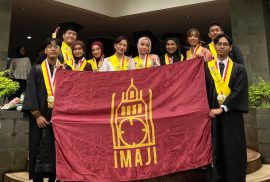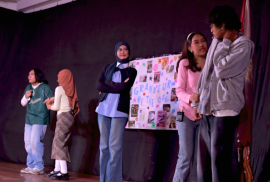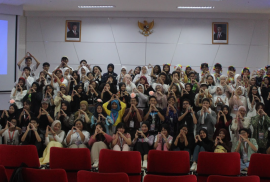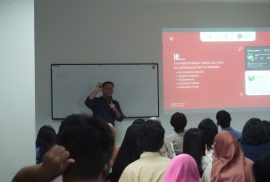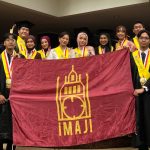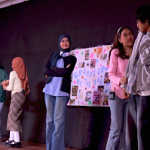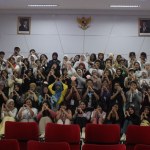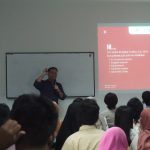Joining the IISMA (Indonesian International Student Mobility Awards) program has been the highlight of my academic life. Ever since I entered university, I wanted to join an exchange abroad so I could learn more about different lives and cultures. I wanted to make friends with people from other countries and compare how different or similar we are. My dream finally came true when I heard the information about a new program, IISMA. Not only would I get to experience becoming an exchange student, but I would also be funded fully by the government of Indonesia. I was lucky enough to receive the scholarship. Not only that but at a top university, the University of Edinburgh. In this reflective essay, I would like to share my experiences of the adjustments of my studying abroad as an exchange student in two different groups, namely the academic life and social life.
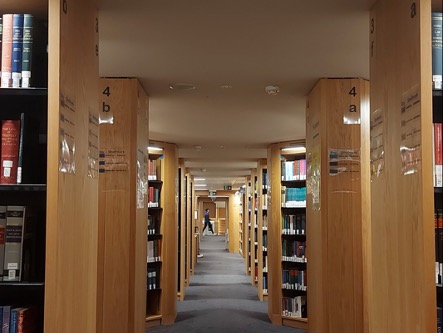
Regarding academic life, there are several things I had to consider. In terms of reading, I had to read a lot of material from different books for one meeting in a course. In Indonesia, spesifically Universitas Gadjah Mada, it is not common to read many pages of one book for a course, let alone hundreds of pages from several different books. This was what happened when I joined the program. Besides, I had to be really independent in terms of studying at the University of Edinburgh. Instructions and reading lists were usually given before all classes started. We are supposed to have understood the system of study so that when the classes have started, we should have understood everything relating to the courses. All things relating to things such as tutorials, the marking system, and assignments should have been at our fingertips. This surely forced me to adapt myself to the system quickly and became one of the stressors, so to speak, that I found in the program. Furthermore, the marking system may put Indonesian students into a problem as the system employed in the UK universities is more complicated. What I did find surprising was the way that the university in the UK is very attentive to the student’s well-being, especially their mental health. GPs or General Practitioners are available everywhere, including in the university, and it is very easy for us students to get access to one. The university also provides each student with a personal tutor. We can ask them anything and they will help us in any way they can.

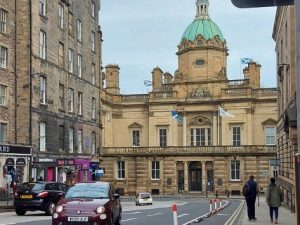
Edinburgh for me is like Jogja, a small city but full of culture. There are almost always men wearing kilts down the streets and playing the traditional Scottish instrument, the bagpipe. The buildings are old vintage buildings, like ones you would find in the Harry Potter movies. As for the weather, it is very unpredictable. One minute it was sunny, the next it would rain. It was also always freezing cold. The joke says that the UK has four different seasons, but for us Indonesians, it may have only two seasons, namely cold and very cold seasons.
As expected, living in Edinburgh is expensive, especially food-wise. Local supermarkets like Lidl and Aldi might be a good choice to shop in since they are affordable. This way, we have to spend money wisely as the funds supporting us were only enough to survive. Takeaways are the biggest problem since there are so many near the university yet they are expensive. One takeaway meal could cost the equivalent of one week of groceries. As a Muslim, it is also important to read the ingredients of something before buying it, because not everything is halal, even though it is pretty easy to find halal food. Foods are much blander compared to foods in Indonesia, which is another reason why I prefer cooking rather than eating out. Thank God I had brought a lot of spices!
When we are living in the UK, we have the experience of getting along with a different culture and people, as well as how to behave in such situations. When I was living in Edinburgh, I had three flatmates: two from the UK and one from Australia. I had to speak English all the time. As we were living under the Western culture, the celebrations that we had were related to the culture. For instance, in December, we celebrated Christmas. Yet I did not have to join the celebration except when my friends had a non-religious party. At the party, there was some food that we could share. So, I joined the celebration that I thought was not problematic to my religion. I began to control what to join and what to not join. As regards partying, it can happen two or three times a week or sometimes more as it is considered a social event. At the party, people drink and socialize too. It is a great way to make friends.
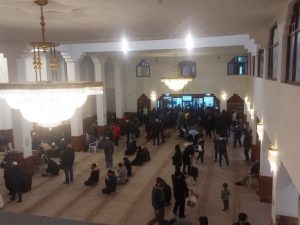
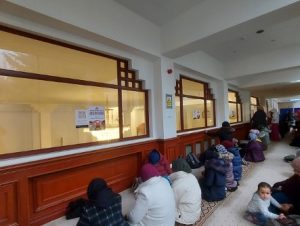
Regarding the Muslim society in Edinburgh, it consists of two groups: students and common people that live there. There is one central mosque near the university where men and women attended the prayers every day, even the Jummah prayers. This is different from Indonesia where women mostly stay at home to pray. To me, this mosque reminded me of home and I felt the safest when I was here. At the University of Edinburgh, there is an Islamic Society that I joined. The members are Muslim students from all over the world. Events such as having dinner together and game night were held by the Islamic Society with the purpose that Muslim students from different backgrounds and nationalities would get along closely. This is to help them with loneliness and homesickness so that they have a community and family.
From my experience of living for three months in Edinburgh as an exchange student, I now can make up my mind about my life. Living in a different culture will open your mind about differences and how to handle them. In the UK, people are tolerable. They will appreciate your ideas, religion, ways of thinking, and culture. In this way, they can accept people from different backgrounds and nationalities. So, we do not have to worry about showing our national identity. Besides, in terms of studying, we need to work hard because the systems are relatively harder than that in Indonesia. Knowing the complete system of education in the UK is necessary for our success in the future. Apart from that, we also have to be able to manage our social life, so that we can get along with people from different backgrounds and cultures. I do hope this very short time in Edinburgh will prepare me for when I study for my higher degree there in the future.

